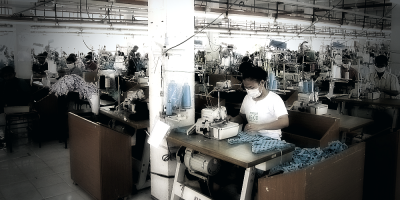PETALING JAYA: Economic analysts and local business associations are of the view that the RM1,500 new minimum wage to be in effect from May will trigger a domino effect across the business sector, forcing companies to offer pay rises to non-entry level workers as well, and sparking fears companies now just about to recover from the pandemic woes will be hardly hit.
While agreeing that salary increase is inevitable, they hope the government will do this in stages instead of a one-off increase of RM300 to the minimum wage. This is to help the recovering businesses while containing spiralling inflation.

Pay rise across the board
Agreeing that the current RM1,200 minimum wage is too low and needs to be revised, National Recovery Council member Datuk Michael Kang nonetheless proposed that the government implement the new minimum wage in stages, say, over the next six or 12 months to avoid excessive burden to companies.
“The economy is yet to fully recover and many local businesses are facing cash flow problem. The government should set a timetable for wage increase so that people can see the government’s sincerity while goods prices are better controlled.”
He felt that the new minimum wage scheme also entails the remunerations of all workers across the spectrum.
“Now that entry-level workers get a pay rise, the salaries of mid-level and senior employees must also be increased accordingly.”
Gradual increase over two years
The Associated Chinese Chambers of Commerce and Industry of Malaysia (ACCCIM) National Council Member Koong Lin Loong told Sin Chew Daily the new minimum wage is poised to trigger a new wave of domino effect.
“If an entry-level worker’s starting pay is RM1,500, sure enough the salaries of more senior staff should also be raised. This is going to be a chain reaction, not just that RM300 per se.”
He said it is still not time yet to increase the minimum wage by RM300 because the pandemic over the past two years has sent many Malaysian companies struggling.
“The government should help local businesses recover from the pandemic, not to increase their financial burden.
“The war between Russia and Ukraine has disrupted supply chains, sending food and chip prices rising.
“Because of higher raw material prices, their nett profits have dropped and they cannot afford to bear the additional wage increases.
“Their operating costs will increase further if Bank Negara decides to hike the interest rate to check the depreciation of ringgit.”
Koong urged the government to specify which are the large corporations involved in the new ruling. The government has previously said only large corporations and government-linked companies will be subjected to the new minimum wage, while companies hiring fewer than five workers and rural businesses will be exempted.
He also proposed that the government increase the minimum wage in three stages to RM1,500 over the next two years so that Malaysian companies will not lose their competitiveness.
“Now that entry-level workers get a pay rise, the salaries of mid-level and senior employees must also be increased accordingly.”
RM200 levy should be borne by workers
SME Association of Malaysia National President Ding Hong Sing said the RM1,500 minimum wage is practical, but the government must allow employers to deduct RM200 every month from their foreign workers for the levy which should be borne by the workers themselves, in order to offset the RM300 pay rise.
He told Sin Chew Daily the biggest beneficiaries of the new minimum wage will be foreigners, as the salaries of most Malaysians have exceeded RM1,500 a month.
As the government has said the new minimum wage will only apply to large corporations and GLCs, Ding said it could potentially trigger a new wave of job-hopping among foreign workers.
Not the best announcement
Hong Chee Meng, President of the Federation of Sundry Goods Merchants Associations of Malaysia, said the government’s announcement of the new minimum wage “is not a good announcement” as it has caused chaos in the market.
“The foreign workers will not care whether you are a GLC or a small company, all they want is their monthly salaries increased to RM1,500 after May 1.
“The increase of their basic monthly pay to RM1,500 will immediately send the companies’ operating cost higher.
“There are more than 40,000 grocery stores across the country. Take 99 Speedmart with its 2,000 chain stores for instance, if one employee in one branch is given RM300 rise, the overall cost increase could be substantial.”
He said this is not the right time to increase the minimum wage given the squeezed profits of grocery stores due to spiralling goods prices, still sluggish economy, the war in Europe and sharp increase in the prices of raw materials such as flour and wheat.
“Eventually the rising cost will be transferred to the consumers.”
ADVERTISEMENT
ADVERTISEMENT








































